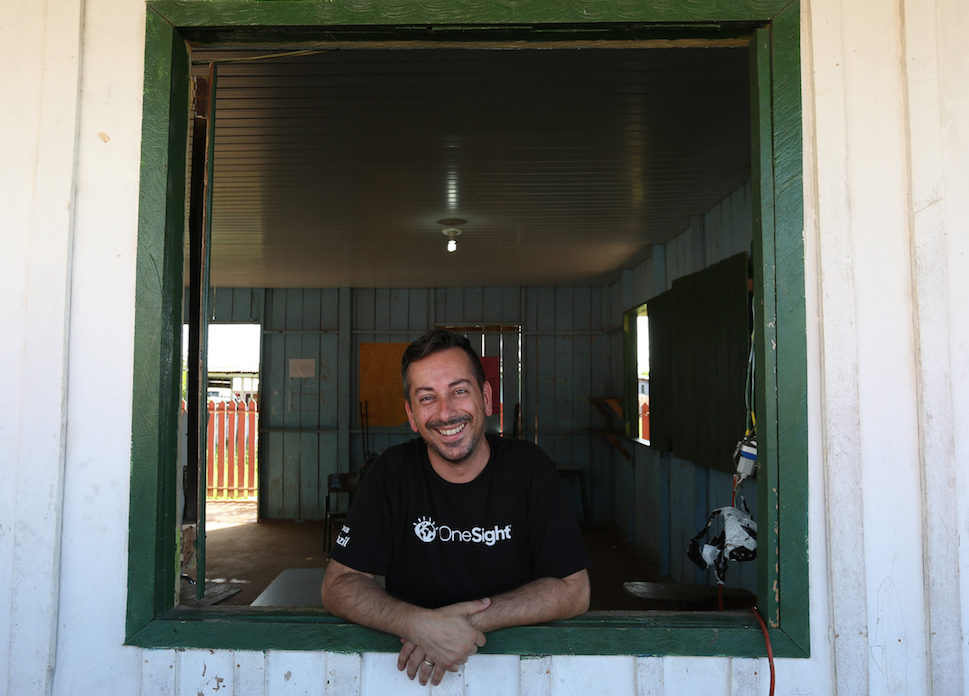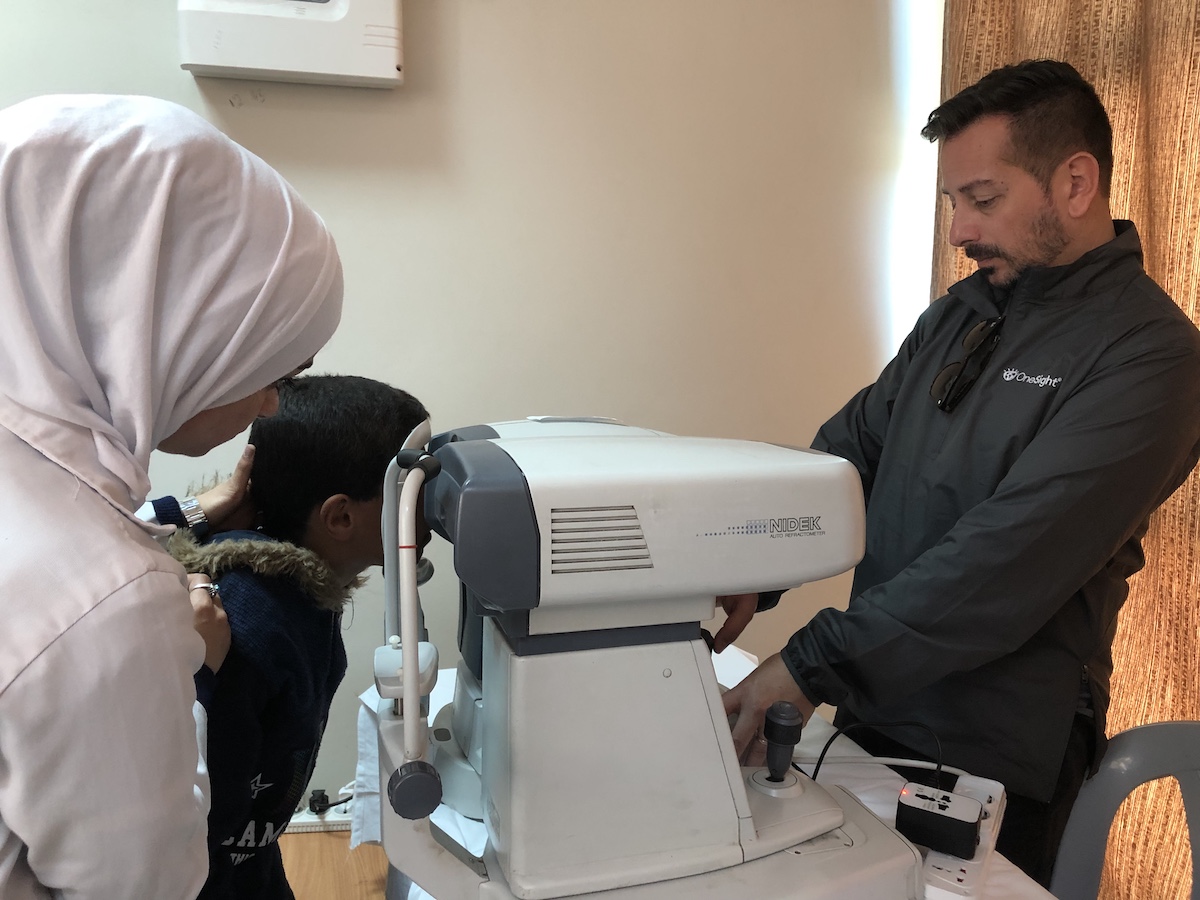OneSight’s work extends across every corner of the globe, and that means our team comes into regular context. Different places lend themselves to differences in language, lifestyle, education, religion – you name it. And whether on-the-ground at a charitable clinic or in strategizing for sustainable solutions, our global team is constantly seeking out ways to educate themselves on these differences and overcome cultural barriers.

Daniele Cangemi has had to navigate many cultural norms firsthand in his role as Director of Programming for the Americas. He works hard to set the vision and strategy for OneSight’s work in Latin and North America, pioneering new and innovative approaches to efficiently and effectively implement strategies in these regions. From sailing down the Amazon River in a boat-based clinic, to serving refugees in Colombia – he’s faced countless cultural challenges while working to bring quality vision care to everyone, everywhere. Here’s what he had to say about what it’s like to work cross-culturally:
What are some examples of barriers you run into while planning for or running international clinics that stem from cultural differences?
It is not easy to be culturally prepared to travel, especially when visiting an unfamiliar place and working for 12 hrs a day in a difficult environment with people who speak another language. For this reason, I always send information about the country, the region and the city OneSight goes to to the team beforehand. I spend a good amount of time on conference calls, and during the clinic orientation, to inform the team on what they can expect and how to be prepared. I provide a brief history of the place, economy, geography and talk about the cultural diversity that people will likely face, in order to have them mentally ready to absorb the differences.
I would say that at least 30% of clinic members have never travelled outside of their city/region/state/country, and sometimes you can even have a person who has never been on an airplane. With that being said, if I had to list the challenges I run into and that are related to cultural differences, I would say the main ones are:
- Language
- Food and water
- Environment (including the sense of hygiene, the weather conditions like temperature and humidity)
- The way in which one understands a person, the family and the extended family
- Levels of poverty
- Differences in what is considered appropriate ‘personal space’
- How to greet others
- How to dress
- Differences in how time is perceived and acted upon
Can you give a specific example of a time you or a team member experienced a cultural difference on clinic and how it was handled?
When you run a clinic in a place where poverty and lack of education are the mirrors of the structure of the society (at least for the poorest masses), where gender roles and norms are not what we are used to seeing – the cultural shock is deeper and the impact on the team is stronger. On the other hand, you can observe the extreme gratitude and happiness of people who get helped. On several occasions, happiness and gratitude are expressed loudly and with visible emotions, creating a situation that positively affects the team (who often doesn’t anticipate this type of very emotional reaction).

What is one thing you have learned or experienced while working abroad that stayed with you and now informs your work or personal life?
It is important to always have a positive attitude, to be humble, not think of yourself as superior, and be ready to listen and learn vs. talk and teach. An open mind and awareness are key!
What is the most challenging aspect of working across cultures?
When there’s a lack of awareness and respect of another culture and a closed mind.
What is the most rewarding aspect of working across cultures?
When the team fully understands, embraces and appreciates the diversity and the differences between a culture and their own.
Interested in learning more about working across cultures? Hear from OneSight’s Manager of Programming for South and Southeast Asia, Maud Zeller, about navigating cultural differences.
Follow us on Instagram, Facebook, Twitter and LinkedIn for more stories of sight.